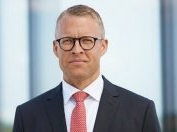International pharma giants looking to make inroads into the Iranian market are going to find at least two drug companies standing in their way--Novo Nordisk ($NVO) and Cipla--which have maintained a presence in the country while Western sanctions ate away at the rest of the economy.
Novo Nordisk, one of the world's top insulin suppliers, and Indian generic maker Cipla have taken advantage of the fact that pharmaceuticals were exempted from sanctions by the West that were designed to keep Iran's nuclear program in check.
Cipla set up a manufacturing plant in 2014 in the country and Novo has maintained a continuous presence there with 130 staff members, which it plans to more than double to 290 with an additional investment of $76 million it decided to make in September.
While drug companies were allowed to work with Iran, actually getting products into the country was a challenge, Novo Nordisk officials told Reuters, mainly because of restrictions on financial transactions and curbs on technology.
 |
| Novo Nordisk's head of marketing Jakob Riis |
"With the sanctions being lifted, we can operate more freely," Jakob Riis, Novo Nordisk's head of marketing told Reuters at the World Economic Forum in Davos. "Novo has been there throughout. Now there are a lot of companies lining up to get into Iran and I think we are going to benefit from having been there for a while," Riis said in the Reuters report.
In addition to maintaining its presence in the country, Novo signed a deal with the government to build a $78 million plant there to make insulin injection devices.
Japan's Takeda Pharmaceuticals is also eyeing the Islamic Republic and its 80 million potential customers.
"It's a significant country," Christophe Weber, CEO of Takeda, told Reuters. "We have a team assessing the situation."
Drugmakers are also considering Iran as a base of manufacturing operations because of its well-educated workforce and could also set up R&D facilities there, according to Richard Bergstrom, director general of the European Federation of Pharmaceutical Industries and Associations.
"Iran is a very interesting market from a commercial perspective," he said in the Reuters report. "I know of a few companies that will now look at investment opportunities there."
Those opportunities may not be so easy to find however, according to a World Health Organization consultant, who said that Western sanctions forced Iran to go it alone in drug development and the country was able to develop a strong generics industry on its own.
"It's very much a generic industry and they have a very strong generic prescription policy," Hans Hogerzeil, a professor of Global Health at Groningen University and the WHO's former head of essential medicines, told Reuters. "So when you look at availability of medicines they actually managed quite well despite the sanctions."
- here's the report from Reuters